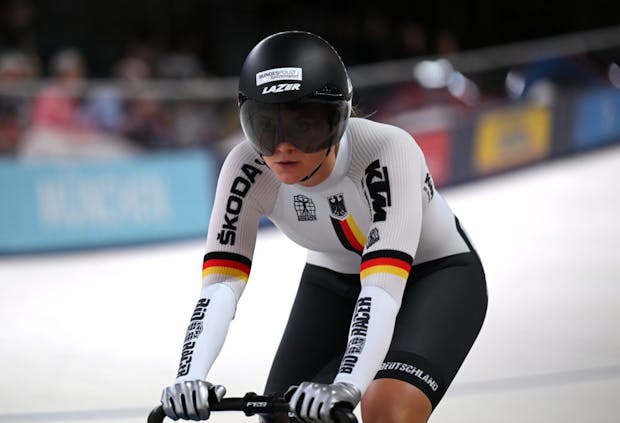
Plans for Hannover in Germany to stage the third edition of the multi-sports European Championships in 2026 were derailed at the last minute by the federal government, SportBusiness can reveal.
European Championships Management (ECM), the sports management firm that developed the event concept, has conducted a two-and-a-half year search for a 2026 host. City authorities and the Lower Saxony state government had given financial backing to a Hannover proposal.
However, with Germany’s budgetary plan for next year still to be signed off amid political turmoil, the hosting budget for a European Championships in 20 months’ time could not be rubberstamped.
While athletics and aquatics were not part of the hosting concept, seven European sports confederations are understood to have committed and a rights deal with the European Broadcasting Union was close.
An event in Hannover would have meant back-to-back European Championships held solely in Germany following the 2022 edition in Munich. The inaugural European Championships in 2018 were co-hosted by Glasgow, which staged the bulk of the sports, and Berlin, the host of the athletics events.
The dates for 2026 were set for July 30 to August 9.
ECM and the different sports, which include cycling, gymnastics, rowing and triathlon, are now faced with two realistic scenarios in order to retain a combined event.
Following the collapse of the Hannover deal, the constituent European federations have already started to look for hosts for their own standalone European Championships in 2026. There is a will on their side, and also on behalf of the EBU, to maintain the collective summer window, align the different schedules and create an aggregated product for viewers with consistent branding.
Alternatively, ECM and the various stakeholders are considering whether to draw a line under 2026 altogether and focus on securing a host for 2030.
Finding a host for the 2026 Championships, while not completely excluded, now appears impossible given the lack of preparation time.
Similarly, there appears no appetite across the board to shift the event to 2027 as it means battling for attention with the rival European Games, an event also broadcast by EBU members. The quadrennial European Championships format was also designed to maximise athletes’ participation.
Hannover, which did not publicly disclose its proposal, has been positioning itself as an international sports destination.
It was recently chosen as one of Germany’s host cities at the 2027 Men’s Handball World Championship and is also among the German cities looking to host matches at the Uefa Women’s Euro 2029 tournament. Hannover also targeted the 2029 World Games but Karlsruhe was put forward instead by the German Olympic Sports Confederation (DOSB).
The search for a 2026 host has been extensive with ECM engaging in talks with 35 cities and undertaking site visits in 18. While there has been interest in the concept, the sign-off of public funds to finance the Championships remains the chief obstacle. Following Covid-19 and the outbreak of the war in Ukraine, supply chain costs for event hosts have spiralled.
Munich 2022 had a budget of €130m ($137m). It was underwritten in equal parts by the City of Munich, the Bavarian state government and Germany’s Federal Government to the tune of €100m. The remaining €30m was to come from ticket sales, sponsorship deals and broadcasting services.
The second edition of the Championships included athletics, beach volleyball, canoeing, cycling, artistic gymnastics, rowing, sport climbing, table tennis and triathlon. Aquatics was not part of Munich 2022, but EBU members tied in coverage from the simultaneous European Aquatics Championships taking place in Rome.
Power of aggregation?
European Athletics and aquatics’ Ligue Européenne de Natation (LEN) were the driving forces behind the inaugural event but snubbed the 2026 iteration. Nevertheless, there remains belief among other sports that the concept works, borne out by the broadcast figures delivered across the first two editions.
Munich 2022 achieved over 750 million viewer hours on linear television and streaming platforms across the nine participating sports – the equivalent of every person in Europe watching at least one hour of coverage.
Gymnastics, sport climbing and triathlon events in Munich all delivered audiences of over 2 million viewers on ARD, the German public-service broadcaster. Mixed triathlon coverage on the BBC at Glasgow 2018 netted an audience of 2.7 million viewers (a share of over 20 per cent) for the UK public broadcaster.
The figures dwarf the numbers normally registered for the various sports’ standalone European Championships often hidden away on an EBU member’s ‘red button’ or streaming service only.
Going into its search for a 2026 host, ECM was able to offer cities a wider package of centralised sponsorship rights.
Centralisation was impossible in 2018 as the commercial focus was on appeasing the seven federations over the integration of their own long-standing sponsorships. It became more centralised in Munich, as most federations granted all of their sponsorship rights for the event to ECM and in turn the host city.
Sponsorship inventory was previously one of the areas of friction in talks between LEN and ECM. The aquatics body was also a proponent of an association taking over the ownership of the Championships, a thorny issue that emerged after the success of the 2018 event.
From the archive: European Championships founders retain belief in concept, heightened centralisation